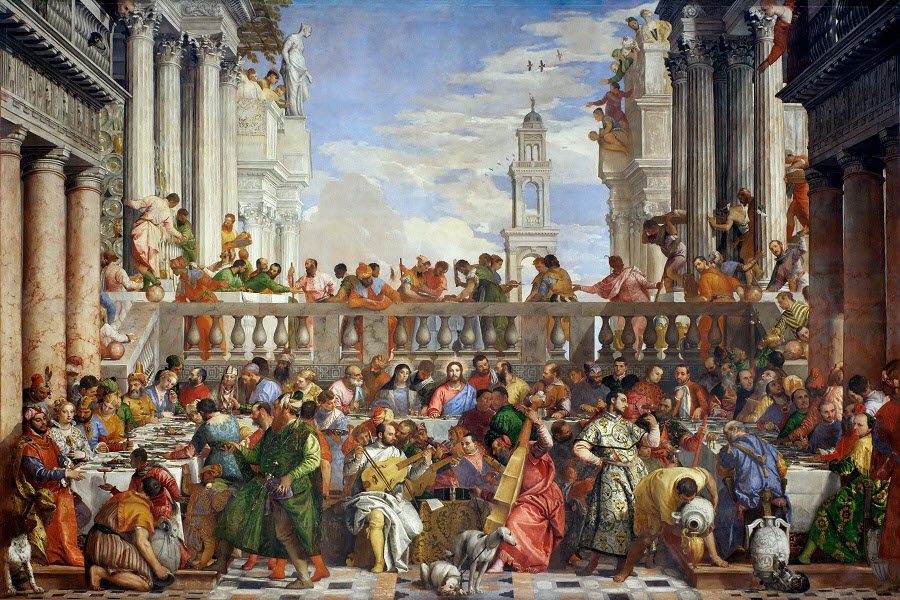
Solemnity of All Saints
10-25-2020Weekly ReflectionThe recurring theme in the book of Revelation is about victory. The victory of Christ, after His suffering and death, now reign victorious and gloriously triumphant in Heaven. Because of this, those who remain faithful will also be victorious in their trials and sufferings. The second reading teaches us that Divine Sonship is sharing in God’s own Son. A “here and now” concept, which means that we already experience this life, but its complete fruition will be when we reach His Kingdom, where God reigns supreme.
The Beatitudes (The Blessed) present the new spirit required of the disciples of Christ. A disciple works not for the benefit of the temporal end but the promised Kingdom. Their motivation is the Messianic blessings, be comforted with God’s victory against the forces of evil, a beatific vision, and the joy of seeing God face to face.
READ MORE
30th Sunday in Ordinary Reflection
10-18-2020Weekly ReflectionThe Book of the Covenant in Exodus asks the Jews to extend charity toward the poor and the weak. A charity to a neighbor that is compassionate, hands on, and applied even in small things. The Gospel tells us to love our neighbor as ourselves, especially the poor and the marginalized. Matthew positions love of neighbor after the foremost commandment, you shall love the Lord your God with all your heart, with your whole soul, and with all your mind. For this reason, Jews practice it by putting into heart this most important commandment, the Shema Israel.
The Commandment to Love God and Neighbor
Matthew emphasizes in this text the unity between the two greatest commandments to love God and to love our neighbor. The commandment to love takes preference then any other commandment. To explain and reveal the meaning of the Ten Commandments, the Pharisees came up with 613 laws, positive and negative. Unfortunately, it became a burden more than a relief, that even the best effort of a pious Jew often falls short. By teaching the greatest commandment, Jesus has effectively reduced the 613 laws into one encompassing perfect commandment.
READ MORE
What is the Biblical Attitude Toward the State?
10-11-2020Weekly ReflectionIn the 1st reading, God anointed Cyrus and shows favor on his rule of the kingdom. Although Cyrus did not know God, his reign is legitimate. But still, the service of God takes precedence over human authorities or institutions. By this time in the Gospel, Jesus' fame and presence are well known not only in Galilee but also in Judea. Jewish leaders are more and more insecure about Jesus' popularity. As so often, they want to entrap Him in words and deeds. Their new modus was to start with overloaded insincere praise to make Him speak out openly. Then with malice in their heart, ask a seemingly innocent but twoedged sword question: Is it lawful to pay taxes to the emperor or not? Census taxes were very minimal, but paying this is regarded as an acknowledgment of Roman dominion over the people of God and thus becomes a religious question. A silver Roman coin is equivalent to one (1) denarius, a day’s wage.
READ MORE
The Parable of the Wedding Banquet
10-04-2020Weekly ReflectionIsrael finally overcomes the burdens of their guilt, their unfaithfulness to the “covenant.” At the eternal banquet, all of Israel invited to the Holy Mountain, where Yahweh is declared King of all nations. First to be invited are the chosen people Israel. Those invited could not come: everyone has an excuse; thus, those finally invited are people in the streets. But those who came are expected to respect the protocol in a wedding banquet. There is a “dress code” at the wedding banquet. The independent theme of the 2nd reading tells us about the value of a gift. Paul appreciated so much the help of the brethren at Philippi. The giver is a “sweet odor for God” and makes the person rich for the giving.
God’s Invitation: Eternal Banquet
READ MORE